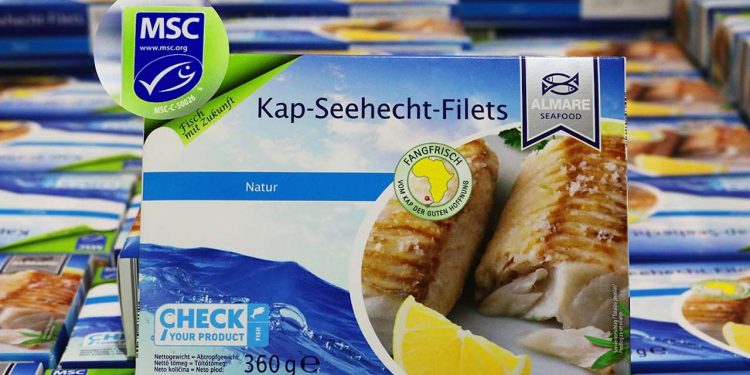After an exacting 12-month re-assessment, the South African hake trawl fishery has been certified ‘sustainable’ by the Marine Stewardship Council (MSC) for a fourth five-year period.
‘The South African hake trawl fishery was the first hake fishery in the world to be certified by the MSC,’ said Felix Ratheb, chairman of the South African Deep-Sea Trawling Industry Association (SADSTIA) and chief executive of Sea Harvest.
‘The fact that the South African hake trawl fishery has retained this prestigious certification for 16 years speaks to an enduring partnership between industry and the Department of Environment, Forestry and Fisheries, the industry regulator, and academic institutions like the University of Cape Town.’
‘The DEFF’s Fisheries Management branch is one of the stakeholders involved in the re-certification of South Africa’s deep-water hake fishery by the MSC,’ commented Sue Middleton, acting deputy director general in the Department of Environment, Forestry and Fisheries (DEFF).
‘The branch is proud to support this certification that promotes sustainable fishing practices in our fishery, including eco-labelling and protecting our ocean’s habitats.’
Approximately 67% of hake caught by the 32 members of SADSTIA is exported and MSC certification is vital to the international competitiveness of the fishery.
‘In northern European countries like Germany, Holland and Sweden, as well as in Australia, the United States and the UK, there is a high degree of consumer awareness of seafood sustainability,’ explained Felix Ratheb.
‘Customers in these countries demand seafood products that can be traced to a sustainable source and this is exactly what our industry is able to deliver. MSC certification is vital to our export business and to the success of our fishery.’
The deep-sea trawling industry catches approximately 120,000 tonnes of fish anually and is by far South Africa’s most valuable fishery, generating sales of R4.5 billion per year and making a total annual socio-economic contribution of R6.7 billion.
The industry employs approximately 7300 South Africans in direct jobs and at least another 20,000 people in indirect jobs. Rights are held by 32 companies which range in size from large, vertically integrated firms to small- and medium-sized enterprises with diversified operations. Together these companies are 66.6% black-owned.
‘Because it is sustainable and well-managed, the hake trawl fishery will continue to deliver these benefits to the people of South Africa for generations to come,’ Felix Ratheb said.









